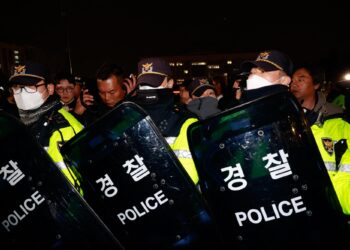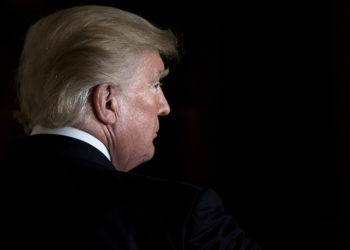Only a month ago, most opinion polls in Britain were forecasting a massive majority for the center-right Conservative Party and electoral oblivion for the center-left Labour Party. At the same time, Prime Minister Theresa May was also on course to secure a large majority in the House of Commons before the upcoming Brexit talks with the European Union.
Fast forward a few weeks, and an astonishing process has taken place in British politics. With the majority of seats now counted and the Party forecast to take 318 seats, it is no longer possible that the Conservative Party will be able to reach the 326 seats in the House of Commons that would also give them a working majority in Parliament. There will no longer be a strong and stable government by the time Brexit negotiations officially start on the 19th June.
The exit poll forecast conducted by the BBC shows that the Conservatives will likely finish on 318 seats, with the Labour Party on 261. Whilst the Conservatives may be able to form a working coalition with the Democratic Unionist Party, it is not clear how effective and longstanding such an agreement could be.
Theresa May has miscalculated big time in calling the election in order to cement her legitimacy as the leader and gain a decisive mandate for the upcoming talks on Brexit with the EU. The gamble had clearly not paid off and a resurgent Labour Party under Jeremy Corbyn has breathed new life into British politics.
Theresa May could be the shortest lived British prime minister in 94 years since the Conservative Andrew Bonar Law who lasted 209 days between 1922 and 1923. The former British Prime Minister Harold Macmillan once remarked on what was the most difficult about his job, ‘Events dear boy, events’ have arguably led to Mrs. May’s downfall. What has therefore led to this remarkable turn of events?
There are two main explanations that are likely to account for this remarkable change of events. However, a full post-mortem will likely take place in the coming weeks ahead.
Firstly, the Conservative Party’s poorly run campaign can be seen as an important factor in why they were unable to win a majority. The initial focus of their campaign was on the Brexit issue and things took a turn for the worse when Theresa May flip-flopped and made a U-turn on the ‘dementia tax’.
The Conservative campaign has appeared stale, with some commentators remarking that policies had not been effectively costed and was one of the worst run campaigns ever.
Secondly and in contrast to the Conservative Party’s campaign, the Labour Party’s campaign has in contrast been seen as a highly effective campaign, with Mr. Corbyn mobilizing large numbers of younger voters at rallies and being mobbed by supporters. Mr. Corbyn has shown himself to be a natural campaigner. Theresa May, by contrast, was viewed as rigid and inflexible, especially for calling the election and then not agreeing to a face-to-face debate with the other main party leaders.
Theresa May will have to be held accountable for the Conservative Party’s failing to get a majority and for running a dismal campaign. Who then would be able to replace Theresa May?
Key Tory figures such as the Foreign Secretary Boris Johnson alongside the Shadow Chancellor of the Exchequer Phillip Hammond are likely to be in the running. There may also be another General Election in the midst if no working arrangement for the formation of the next government can be reached. With such a shock result and so many uncertainties to come, stay tuned to your seats as the drama is far from over.
________________
James F. Downes is a Visiting Scholar in European Politics, European Union Academic Programme Hong Kong and Director of British & European Politics at Parliament Street.
Chris Hanley is Group Leader at Kantar Public Brussels.























